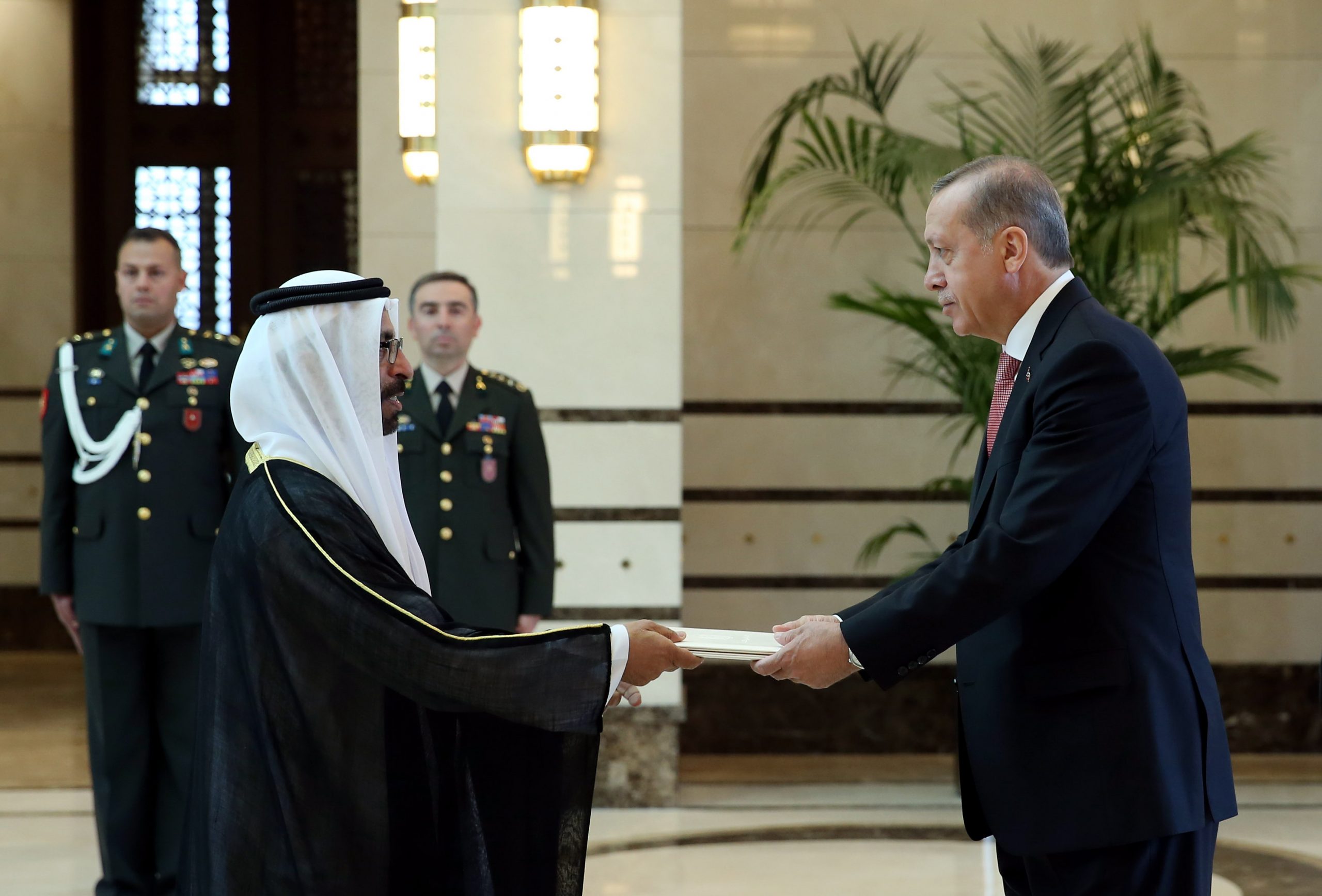It is not possible to talk about Arab-Turkish relations without indicating that this relationship remained linked to the Ottoman Empire and its relations with the Arabs, despite the passage of more than a hundred years since its end.
However, the relationship between Turkey and the Arab countries has not yet reached the stage of psychological and political balance, since there was a great estrangement between the two sides for a long time, as Turkey chose the identity of secularism and economic, political and intellectual integration with Europe and the estrangement with the Arabs, while the Arab countries fell under Western mandates and had internal struggles over their identity and politics. However, concerns and mistrust between the two sides remained, and the two sides agreed to ignore each other.
Things changed in 2002 with the arrival of the Justice and Development Party (AK Party) to power in Turkey with a moderate Islamic face and its achievement of outstanding economic achievements, and its desire to open a new page with the Arab world as Turkey’s cultural and economic extension and its importance parallel the Turkish-European relationship.
That period saw the improvement of Turkish-Arab relations significantly, and the social, cultural, monetary and political trade expanded, however, this did not drop the doubt between the two parties, particularly since the Turkish initiative was more enthusiastic and fast in communicating with Arab countries in a way that does not fit with the strategy of the Arab political view, which is described by being alert and gradually settle on a choice.
But, the crises in the Arab region decreased the state of suspicion between the two parties, most notably through Turkey’s lack of support for the US’ war to invade Iraq. Furthermore, Turkey and Brazil agreed with Iran on a mechanism for resolving the Iranian nuclear file through the exchange of Iranian nuclear fuel in 2010, according to which Iran agreed to exchange 1,200 kilograms of low-enriched nuclear fuel with a similar amount of highly enriched nuclear fuel for medical uses without giving Iran any regional privileges. Then Turkey sent the “Mavi Marmara” ship to break the siege of Gaza and engage in mediation between Israel and Syria in the indirect peace negotiations between them.
The beginning of the Arab Spring in 2011 was the pivotal point in the Arab-Turkish dispute, as the Turkish vision differed from its Arab/Emirati and Saudi counterparts – specifically – regarding how to deal with the Arab Spring revolutions in Tunisia, Egypt, Libya, Syria, and Yemen. Consequently, some Arab capitals dealt with the Arab revolutions, especially after the Turkish support for them, as an imminent danger and an existential threat, wildly if the revolutions succeeded in establishing new governments under Turkish auspices.
The difference in dealing with the Arab revolutions was not the only factor that caused this disagreement in the relationship between Turkey and some Arab countries, especially the Gulf states.
In fact, other factors deepened this rift, the most important of which may be Turkey’s bias towards the complete control of the Muslim Brotherhood over the rule in Egypt, which is considered the strategic extension of the Gulf countries and, later on, Turkey’s reception of the leaders of the Egyptian Muslim Brotherhood and considering the rule in Egypt illegitimate.
Other factors include the Turkish involvement in Libya, which Egypt saw as aimed mainly at destabilizing Egypt, and finally Turkey’s support for Qatar in 2017, after imposing the blockade on it, which Saudi Arabia saw as a direct threat to it.
The historical dimension of Arab-Turkish relations and the lack of trust in the current period, and the inability to communicate to reduce the gaps in viewpoints led to a state of political estrangement between Turkey and Arab countries such as Saudi Arabia and Egypt. Regardless of the Turkish interpretation of all these events, They launch to see Turkey as no less dangerous than Iran
It represents the victory of the Democratic administration in the US elections and its focus on confronting China, containing Russia, the gradual withdrawal from the Middle East, and reaching an agreement with Iran on its nuclear project, which the American administration believes will be vital in resolving the crisis in the Middle East, especially in Yemen, Syria, Lebanon, and Iraq. Moreover, it means giving Iran the main role in reshaping the Middle East for years to come.
The Arab countries and Turkey will pay the price for this policy, which will not bring stability to the region if the US does not realize the rejection of the people and governments of the region to Iran’s extremist policies that have brought nothing but destruction and devastation wherever they are. Considering Iran has an upper hand in the region means the weakening of all Arab and regional countries politically and economically, where a state of instability much more dangerous than what we see today will emerge.
Hence, reactivating the Turkish-Egyptian-Saudi/Gulf relations may be the cornerstone for putting forward alternative ideas that achieve the security and interests of the countries of the region and the United States without any harm to the stability of the region or its future, given that these countries, with all their differences and the problems we mentioned,
They have common denominators to live with each other with more confidence than Iranian expansion
In order to achieve effective work for this group, these countries must first engage in a frank, serious and in-depth discussion to discuss the causes of all the previous problems and find fundamental mechanisms to build mutual trust, to establish a long-term relationship and to develop consistently, find realistic ideas that preserve the sovereignty and security of these countries and achieve their interests without interfering in their internal affairs, and respecting the peculiarities of all countries concerned.
Turkey can start with this media and political path, knowing that institutional mechanisms exist, but it needs a political decision from everyone to activate them before it is too late.













